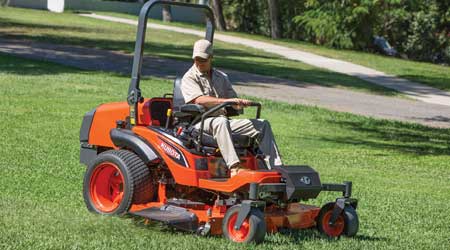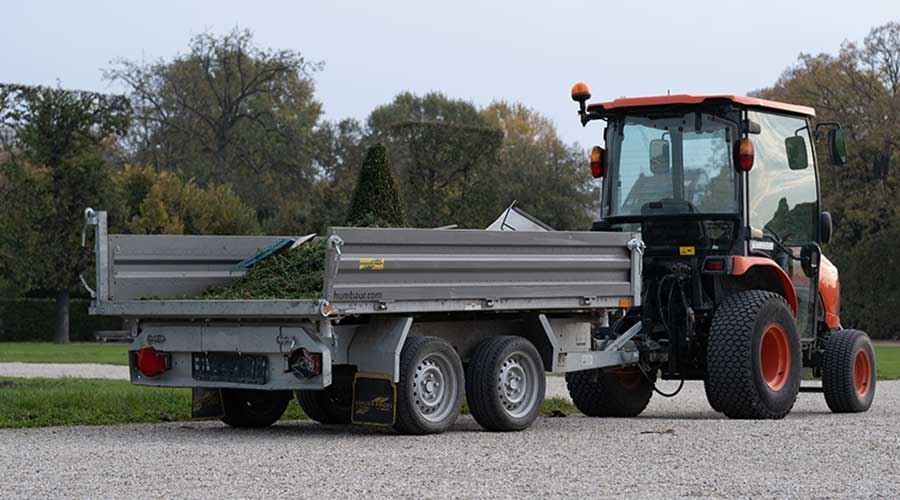How to Fine-Tune the Mower Specification Process
By looking beyond price and power, managers can fine-tune purchase decisions and ensure long performance life.
Investing in big-ticket equipment such as mowers involves important considerations for grounds managers, so it’s understandable that their focus often starts with price, size and power. While that approach is understandable, successful purchasing decisions ultimately involve additional considerations that can be easy to overlook. Managers who can incorporate such issues as department needs and sustainability into the process can ensure their decisions deliver long-term performance.
Knowing needs
Manufacturers have updated and introduced a vast array of mower options in recent years to meet the ever-changing conditions facing grounds departments, so the challenge for managers is to take the time to understand the issues that mower operators and mechanics encounter daily. The first step is to develop a plan that takes a landscape’s unique variables into account. Key considerations include:
Location. A landscape’s location matters for several reasons. The first is that equipment operating and maintenance requirements vary depending on a region’s climate. For example, high humidity and extreme hot or cold temperatures affect oil viscosity, fuel type and required maintenance for mowers. The environment also can play a role in which mower attachments workers require.
Terrain. Managers need to identify the conditions and uses the mower will facet. Consider these questions:
- How much turf do crews need to mow and how frequently?
- What daily, weekly, monthly and seasonal landscaping schedules do mower operators need to meet?
- Does the terrain feature steep hills, low valleys or rough patches? Different mowers are designed to handle a variety of terrains.
- How many trees, bushes, shrubs and plant beds do crews need to mow around? This information will influence decisions on features such as mower-deck width.
- Are operators trained to safely and properly perform mowing tasks? Managers want to provide crews with reliable equipment, but they also need to make sure operators use the mower the right way.
Money. When it comes to buying mowers, managers have a host of choices but most likely limited finances, so understanding budget limitations is essential. Using this information, they can develop a long-term strategy to prioritize mowing needs in order to best meet the department’s goals.
One important goal in the process is being certain to purchase a high-quality mower at a competitive price. Online forums, as well as articles and whitepapers by experts in the profession, can provide a great deal of helpful information.
Managers need to be familiar with the brands and types of mowers that offer the best manufacturer warranty, fit best with the department’s landscaping, staffing and budgetary requirements, and bring the greatest return on the investment.
Manufacturers can be valuable resources when it comes to the mower longevity managers expect out of equipment, and this insight usually dictates their warranty periods. Managers generally can get the greatest value by replacing a worn mower when it gets near the end of its warranty period. A well-maintained mower can outlast its warranty, but running it beyond that period increases the chances of expensive repairs, which are costly because of the parts and labor but even more so in the time lost due to unplanned equipment failure or the inestimable costs associated with an injury.
Fuel types. Gasoline and diesel remain the two most common fuels powering mowers, but cleaner-burning, environmentally friendly alternatives are becoming more available and popular. Green fuel sources, including biodiesel, propane, compressed natural gas and electricity, offer managers the potential for greater efficiency and fewer emissions. Their initial cost can be higher, but managers actually can benefit in the long run because they use less fuel, extend equipment life and support sustainability efforts on many levels.
Sustainability spotlight
Let’s take a closer look at mowers and sustainability considerations. With a variety of mowers on the market, it can be difficult for managers to identify the most sustainable choices for their properties.
For managers in the market to buy a new mower, one of the best indicators of a unit’s durability and ease of maintenance is the type of fuel it requires. Propane and electricity continue to gain momentum in the marketplace. They are better for the environment and more energy efficient compared to gasoline-powered mowers.
Unlike mowers that use gasoline, propane-powered models require 50 percent fewer oil filter changes, which significantly decreases the risk of mechanical problems. Some might argue that the per gallon conversion rate for gasoline is more efficient, but the ratio is the same if the equipment is adjusted properly.
Depending on the size of the property, another viable option is a battery-powered mower. Because they do not require oil, the risk of mechanical issues decreases tremendously, making it the most sustainable option. In terms of operation, a battery-powered mower is easy to use as long as operators remember to recharge or replace the battery pack. They also are the most efficient among propane and gasoline-powered mowers. That said, they also are the most expensive option.
Before managers make a choice, operators must test-drive the mower to ensure it is user-friendly. Since mowers contain so many moving parts, durability can be a concern. This is where the size and topography of the landscape become factors. Managers need to make sure crews can use a particular mower on the entire turf area.
In regards to fuel selection and durability, gasoline-powered vehicles still dominate the market. But as more managers have embraced sustainability, alternative fuels have made headway. These products are cleaner environmentally, and they increase the efficiency of mowers and extend their performance lives. Electricity, propane and bio-diesel have affected new-generation vehicles, and since these fuels contribute to a lower risk for mechanical malfunctions, concerns about performance and maintenance issues are lower.
Mike Fitzpatrick is vice president of U.S. Lawns which has more than 260 franchises nationwide. Fitzpatrick has more than 30 years of experience in the grounds industry.
Related Topics:












